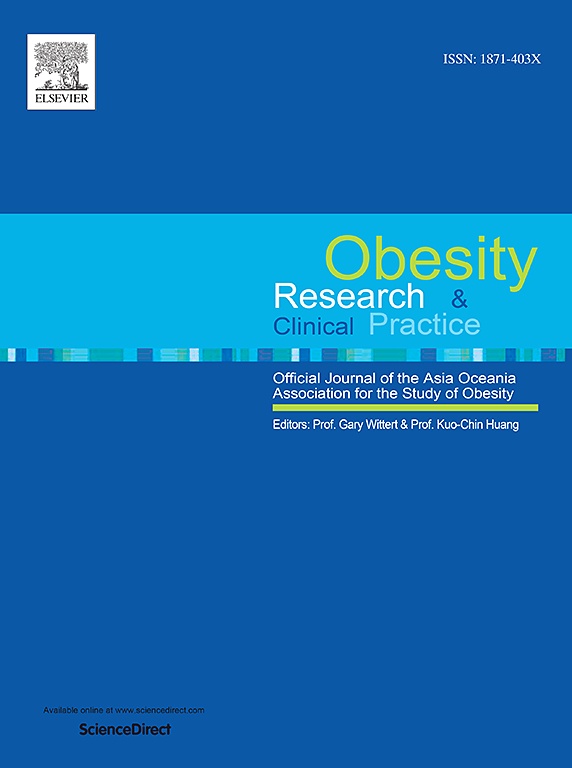重新定义儿童肥胖中的食物成瘾:需要文化相关性和数字创新。
IF 2.5
4区 医学
Q3 ENDOCRINOLOGY & METABOLISM
引用次数: 0
摘要
这封信是对An等人关于肥胖儿童的食物成瘾与情绪和行为问题之间联系的文章的回应。我们强调两个关键点。首先,大多数关于食物成瘾的研究来自西方国家,然而儿童肥胖在低收入和中等收入国家(LMICs)迅速上升,尤其是在东南亚。饮食习惯、家庭角色和情感表达方面的文化差异可能会影响食物成瘾的表现,应该加以研究。其次,像耶鲁儿童食物成瘾量表(YFAS-C)这样的工具必须仔细调整,并根据不同的文化进行验证,而不仅仅是翻译。我们还建议使用应用程序和游戏等数字工具来支持治疗,但这些工具的设计应符合道德标准,并进行适当的测试。我们呼吁建立全球研究伙伴关系,采取具有文化敏感性的方法,以更好地了解和解决全世界儿童的食物成瘾问题。本文章由计算机程序翻译,如有差异,请以英文原文为准。
Reframing food addiction in childhood obesity: Cultural relevance and digital innovation needed
This letter responds to the article by An et al. on the link between food addiction and emotional and behavioral problems in children with obesity. We highlight two key points. First, most research on food addiction comes from Western countries, yet childhood obesity is rising quickly in low- and middle-income countries (LMICs), especially in Southeast Asia. Cultural differences in food habits, family roles, and emotional expression may affect how food addiction appears and should be studied. Second, tools like the Yale Food Addiction Scale for Children (YFAS-C) must be carefully adapted and validated for different cultures—not just translated. We also suggest using digital tools, like apps and games, to support treatment, but these should be designed ethically and tested properly. We call for global research partnerships and culturally sensitive approaches to better understand and address food addiction in children worldwide
求助全文
通过发布文献求助,成功后即可免费获取论文全文。
去求助
来源期刊

Obesity research & clinical practice
医学-内分泌学与代谢
CiteScore
7.10
自引率
0.00%
发文量
80
审稿时长
49 days
期刊介绍:
The aim of Obesity Research & Clinical Practice (ORCP) is to publish high quality clinical and basic research relating to the epidemiology, mechanism, complications and treatment of obesity and the complication of obesity. Studies relating to the Asia Oceania region are particularly welcome, given the increasing burden of obesity in Asia Pacific, compounded by specific regional population-based and genetic issues, and the devastating personal and economic consequences. The journal aims to expose health care practitioners, clinical researchers, basic scientists, epidemiologists, and public health officials in the region to all areas of obesity research and practice. In addition to original research the ORCP publishes reviews, patient reports, short communications, and letters to the editor (including comments on published papers). The proceedings and abstracts of the Annual Meeting of the Asia Oceania Association for the Study of Obesity is published as a supplement each year.
 求助内容:
求助内容: 应助结果提醒方式:
应助结果提醒方式:


